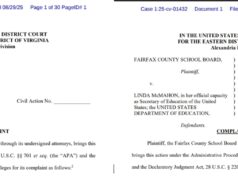By Josh Stanfield of Activate Virginia
After tossing this essay to the wolves last week, I’ve been absorbing and carefully considering the criticisms. I’ll address them one-by-one below. But it’s important to note what hasn’t been discussed or critiqued from the essay, namely the fact that the federal and state regulatory entities are compromised and therefore shouldn’t be automatically trusted to independently evaluate these projects. That this point has been ignored should be reason to further investigate.
Criticism 1
Some variation of: Criticism of Northam’s pipeline position could throw the election to Gillespie.
For the most part, the above criticism is made in harsh and condescending tones – as if we’re being educated, enlightened about the “reality” of electoral politics. Yet this criticism is made without an ounce of irony – that is, without the recognition that arguing this way simultaneously misses and proves one of the points of the essay. It’s no coincidence that this point was made under the subtitle “Democratic Cognitive Dissonance.”
For those of you who read the original essay before commenting (thank you), feel free to skip over the following excerpt:
“We hear from the loyalist corners of the Party – often in remarkably authoritarian tones – that complaining about the pipelines is tantamount to supporting Ed Gillespie, that criticism of Ralph Northam is a sure sign of a heretic. That opposition to the pipelines must mean you don’t care about women, about the marginalized, about healthcare, about the survival of our republic itself.
This isn’t a new way of arguing, and you’d think recent world-historical events would have us question whether or not this mode of communication is effective at all. But here’s the reality: the Northam campaign has the data, they have a strategy, and they’re acting as if the data suggests they can get away with this position. None of us have as much time (or money) invested in reading the outcome of this race.
So given Northam’s position, any attempt to suggest anti-pipeline activists could cost Democrats the election seems a transparent attempt to simply silence dissent. And in this case, an attempt to also silence Virginians whose health, family, property, and environment are seemingly under siege.”
Have there been any developments over the last week that alter my argument? Not really. Lowell’s look at the summer gubernatorial polls of the past should make you think twice before drawing conclusions from the 44-44 Monmouth poll. The argument remains the same: until the Northam campaign acts like the race is close – or releases a recent internal poll suggesting reason to be worried – calls for silence on the pipeline issue are simply attempts to stifle dissent and impose Party loyalty.
It’s important to understand that this general criticism accepts a certain type of relationship between the citizen and the politician, a relationship described by elite theories of government. Consider two ways to understand the Virginia situation and decide for yourself which best reflects democratic ideals:
(1) A majority of Democratic voters chose Ralph Northam in the June primary. As a result, Northam’s policy preferences and campaign strategy are off limits from June 13th on, if a citizen wants to credibly claim to care about Democratic victory and reform. If the Northam campaign changes position on an issue, ignores an issue, backs off a commitment – it’s the responsibility of the voters to follow their candidate, hold back all criticism, push the campaign’s line, at least until November.
The burden is on the voter to repress, change, follow the lead of a leader asking us for immense power.
(2) Ralph Northam and Tom Perriello made their respective cases around the state, and Northam’s Democratic coalition turned out and earned a solid primary victory. Ralph now confronts the general electorate, and it’s the job of his campaign to develop a winning strategy. Since politics – especially now – is tumultuous, the campaign expects public opinion to change, expects priorities to shift, and continually adjusts their strategy to ensure a winning coalition turns out. Voters continue to make their voices heard, advocate for their candidates and policy preferences, and politicians are responsive to the extent they feel they need to be to achieve victory.
The burden is on the candidate and the campaign to listen, to change, to reflect a vision that appeals to enough voters to form a winning coalition.
Criticism 2
Some variation of: Stop the theatrics.
This criticism came first from Delegate Levine – a curious messenger for this message, given his proclivity towards appearing on Fox News with a pocket Constitution. To be fair, unlike most Democratic piñatas that appear of Fox, Delegate Levine makes strong, persuasive arguments. But to appear on cable news regularly – setting aside the revered prop – is to embrace the primary source of political theatricality today.
Political theatre isn’t in itself problematic, though. When I saw the protestors disrupt Northam’s primary victory party, and when I saw the protestor disrupt the debate, my mind immediately went to ACT UP. This is probably because I just finished David France’s brilliant chronicle of the ACT UP movement, How to Survive A Plague, and I was impressed by the creative tactics deployed successfully in battling the AIDS crisis and forcing mainstream America to confront the suffering, tragedy, and resilience of the marginalized and ignored.
We see in Black Lives Matter and, with the recent healthcare struggles, ADAPT, disruptive and arguably theatrical tactics in action. And when it comes to anti-pipeline protestors, well, if their goal was to force a conversation on the pipelines – haven’t they succeeded?
A 2016 Pew study concluded that 36% of individuals familiar with Black Lives Matter say they don’t understand the goals of the movement. That’s not to say there aren’t goals. Similarly, I think the honest criticism about anti-pipeline protest tactics is grounded in a lack of understanding about the ultimate goals. Open lines of communication and public information campaigns are immediate solutions that come to mind.
Criticism 3
Some variation of: Sit down with Ralph, talk, and reach a compromise.
It’s simply not the case that an average Virginian – unless you’re ready to write a big check – can schedule a sit down with Ralph Northam. Apparently there have been anti-pipeline leaders who’ve met with him, as they’ve met with Governor McAuliffe, but clearly they haven’t seen any progress. I can think of plenty of landowners, organizers, and activists who would gladly meet with Ralph if that offer were to be made.
In my own case, well, I’m not audacious enough to ask for a meeting. Both of my attempts to contact the campaign – once to see if he would consider our pledge, again to request Dominion divestment – received no response.
Criticism 4
Some variation of: Ralph can’t actually do anything – what is it these protestors want?
I can’t speak for any organizations or activists other than myself, and I don’t live in an area directly and immediately affected by the projects. The following three actions by Ralph Northam, in my mind, would be positive steps that would earn votes:
(1) Publicly recognize that when members of regulatory bodies have current or past ties to the corporations they’re meant to regulate, an unacceptable conflict of interest exists. Or – at the very least – agree we should apply heightened scrutiny in considering their opinions and decisions.
(2) Publicly urge the DEQ to require site-specific water-quality permitting – as they stated then suspiciously reversed – as opposed to deferring to an Army Corps of Engineers blanket permit.
(3) Publicly oppose any future pipeline projects in Virginia.
Notice that none of the above suggestions require Northam to take any legal action or use his official capacities as LG or (we hope) as governor. Instead, they simply require him to make a few principled statements that are mostly symbolic but entirely in line with the principles and policy preferences of the Democratic Party.
Conclusion
It’s been incredible to witness the knee-jerk opposition to discussion of this issue. The projection of uninformed critics: “the protestors don’t know science!” The pressure to self-censor. All of this from members of the Party opposing the Trump regime and members of groups focused on resistance.
Trump’s ascendancy has only been possible because of a corrupt and controlled political culture. The Virginia Way represents a special case of this rotten status quo. So even though I’m voting for Ralph Northam – I’m told this fact must be included in my response – I’ll continue to reject attempts to quiet debate or downplay the importance of the conversation.
If the Northam campaign’s posture is indicative of their research, open debate on this critical issue won’t stand in the way of victory. And – again – if we get to the point at which it could, the burden should be on the candidate and campaign to embrace the Democratic position and form a winning coalition.














